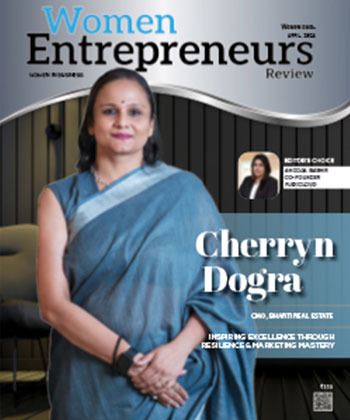
Workplace Flexibility is the Key for Retaining Female Employees
By: Navyasri, Writer, Womenentrepreneurindia
When flexible work schedules first became available in the workplace, many people believed it was a match made in heaven for working moms—and to be honest, they were right. After all, flexibility gave working women who had previously struggled to balance work and family life a sense of relief. According to studies, men are more ambitious when it comes to ascending the corporate ladder, but women tend to stay still beyond a certain point in their careers. The reason for this is familial responsibilities. Working women, especially mothers are worried that advancing in their careers will entail more time spent in the office, and many are unwilling to make that sacrifice. Having a flexible schedule allows women to advance in their careers without having to sacrifice time with their family.
LinkedIn, the online professional network, issued its latest consumer research report, which highlights the problems that women face at work. The research is based on the responses of 2,266 people across India. According to the study, employers' attitudes regarding flexible working and career breaks are preventing women from requesting more flexibility and re-entering the workforce. Working women in India are resigning or considering abandoning their jobs in 2022 as a result of salary reduction, bias, and marginalisation as a result of working flexibly.
In India, 72 percent of working women reject jobs that do not provide them flexibility.
According to LinkedIn's research, 8 out of 10 working women (83%) have realised they want to work more flexibly as a result of the pandemic's impact. In fact, according to the report, 72% of working women reject employment that do not enable them to work flexibly, and 70% have already quit or are considering resigning because they were not offered the necessary flexible policies.
When asked about the advantages of flexible working, nearly two-fifths of women said it improves their work-life balance (43%) and helps them advance their careers (43%), while one-third said it improves their mental health (34%), and boosts their chances of staying in their existing professions (33 per cent).
However, India's working women pay a high price for working flexibly due to strong employer bias. 9 out of 10 working women (88%) had to take a wage reduction to work flexibly, 2 out of 5 (37%) had their request denied, and 1 out of 4 (27%) struggled to persuade their bosses to approve their request. Women are hesitant to ask for more flexibility because they are afraid of being excluded, being passed over for promotions, having to work overtime, taking salary cuts, and being treated unfavourably by their bosses.
Given the potential for guilt and stigma associated with flexible policies, one out of every three working women in India is hesitant to tell their clients (34%), coworkers (35%), and friends (33%) that they work flexibly.
Working women in India are taking career breaks to upskill in the hopes of improving their employability in today's competitive job market, however this is not the case.
Working women in India are taking career breaks to enhance their well-being, plan career changes, and boost their confidence at work, as they continue to juggle personal commitments and professional advancement within rigid schedules. Career breaks are helping women upskill and increase their employability in today's tight job market, with 9 out of 10 working women using their time off to master new hard and soft skills.
Despite these advantages, nearly four out of five (77%) professional women in India who took a break think it harmed their careers. This is owing to the widespread stigma surrounding career breaks among recruiters and employers, making it difficult for every second (50%) working woman in India to explain her leave to recruiters. As a result, many people choose to leave career breaks off their CVs (42%), or mislead to potential recruiters about them during interviews (35 per cent).
Forced to keep their professional breaks hidden from recruiting managers, 80% of working women in India want for strategies to better represent their breaks to hiring managers.
When the women's entrepreneur team approached Ms. Sonya Khandelwal (Entrepreneur/Life Coach/Motivational Speaker/Founder, Etheralsonia) for inputs to the article titled- "Most Effective Strategies to Improve Women’s Performance at Work," She told us "Flexible work timings, monthly days offs, etc can make a Happy Workplace. Allowing employees the comfort of working from home as an option is another small but impactful benefit. On days when they’re not in a state to reach office, or need to rejuvenate & take a day to themselves , working from home can help them without them worrying about losing their leave balance."
In the past, it was expected that women would be the ones to request work flexibility during an interview. That is no longer the case. Both men and women desire flexible schedules among today's sophisticated job candidates. When both men and women seek for work flexibility, it dispels the myth that only women require it because they are frantic to balance the demands of work and family life. In essence, it enables hiring managers to assess job candidates based on their potential, understanding that work flexibility is now a requirement for all employees irrespective of gender.






